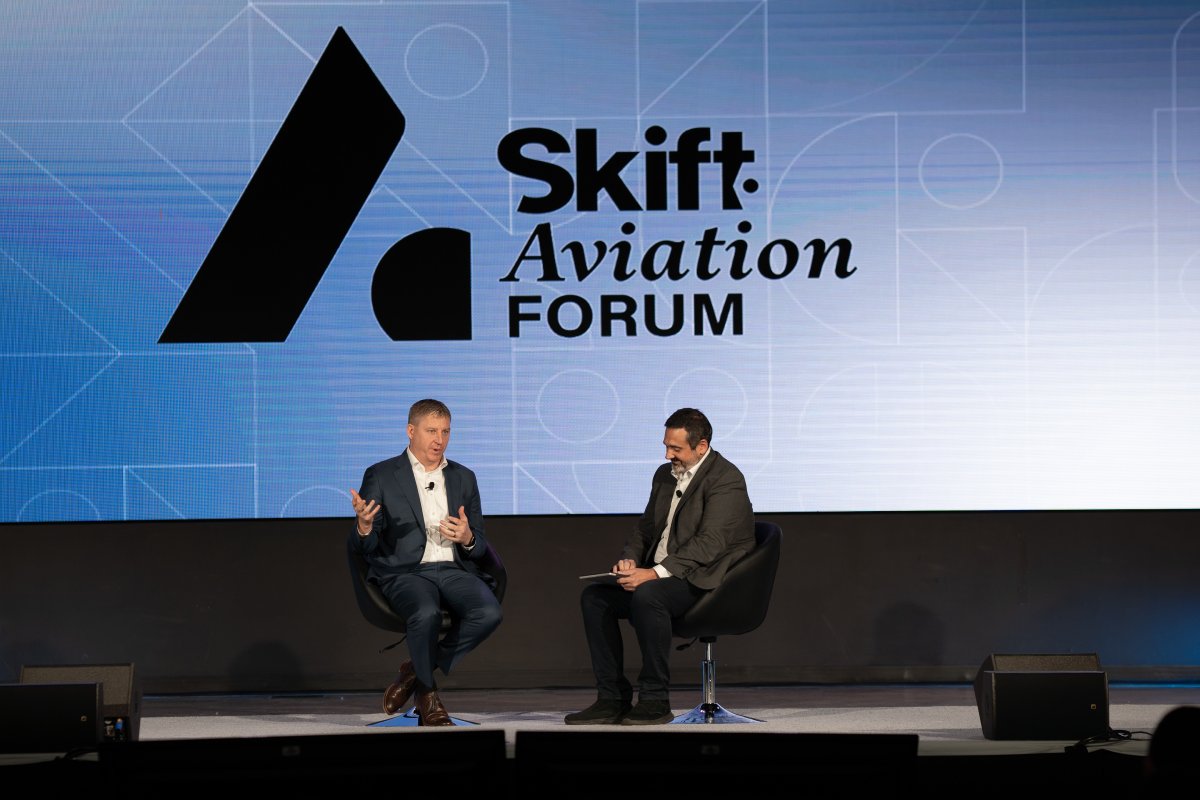Azul Brazilian CEO Doesn’t Expect Ultra Low-Cost Carrier Competitors

Skift Take
Brazil will remain a challenging place for ultra low-cost carriers (ULCC) to successfully operate due to its legal environment, high labor and fuel costs and burdens for flight disruptions.
Azul Brazilian Airlines CEO John Rodgerson said the Brazil market is “just not there yet” for the ultra low-cost carrier model that is emerging in Chile, Peru and Columbia on Wednesday at Skift Aviation Forum in Dallas. Brazilian Airlines is a low-cost carrier with flights to 170 destinations in Brazil.
In a conversation with WestJet Aviation Advisor and board member Alex Cruz, Rodgerson said one primary reason was the airlines already unbundle their products, which is a keystone strategy of ULCCs. Fuel costs are also 40 percent more expensive than in the U.S. and Europe and unions have a minimum salary.
Another primary reason is that airlines bear costs for disruptions they have no control over. Rodgerson cited the example of Rio De Jinero’s Santos Dumont Airport, which can close due to “fog” or weather impacts.
“When [Santos Dumont] closes, we are responsible to feed the passenger, access the internet, transportation and a hotel night and it has nothing to do with us,” he said. Rodgerson said one big event for a ULLC and it would “game over for that business model.”
Brazi’s legal environment also makes it harder for ULCCs to be profitable.“Brazil is a very litigious society” and is home to 85% of the world's lawsuits, according to Rodgerson. “Azul is ranked as the most on-time airline in Brazil four times this year, but we get 4,000 civil lawsuits a month,” he said. Legal costs contribute to higher airfares
Ultra low-cost carriers would need to spend a considerable amount of money to fight off lawsuits. He also said ULLCs would have to deal with legal troubles spread out in the country. “You can have some random judge in the middle of nowhere in Brazil, that's taking a decision,” he said. “ I joke every bag we lose has a wedding dress in it.”




